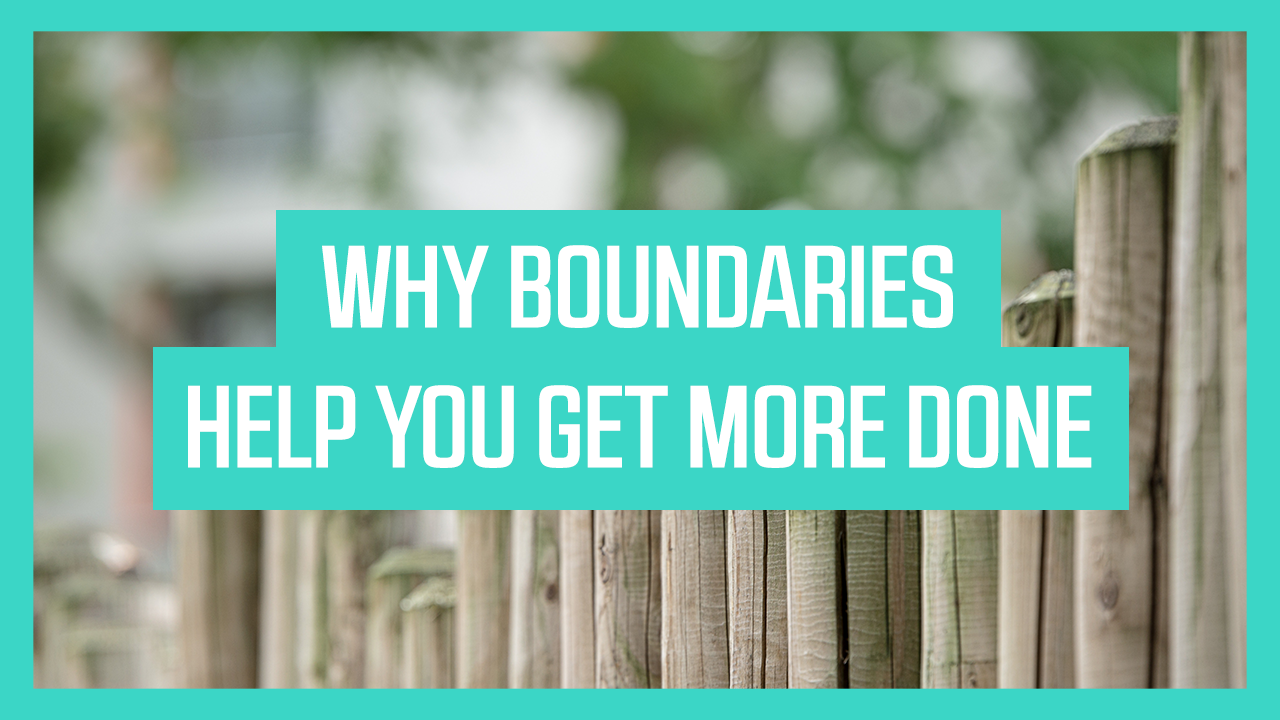Imagine on Monday you have a list of 20 things to get done this week. You get 10 done and 15 more get added through the week. More gets added and you can’t keep up. When you reflect on the week at the end there were 50 tasks. But only time for 45. 5 items carry over to the next week.
The way we work
Usually, the way we work is defined by the timing of the tasks given. It could be a client, customer, or boss who assigns it. Maybe an email comes through that feels urgent so that gets priority without really thinking through whether it will move the needle forward.
So let’s pause and look at this dynamic. If you were doing yard work and you do it this way it’s sort of an ADHD way of approaching work: First I’ll rake for five minutes, look there are some flowers that need weeds removed… My neighbor just lent me a leaf blower so I’m going to do that… And the shed needs fixing but I never finished raking…. That would be maddening!
Decide where you’re heading
What would happen if you paused and decided where you were heading first. The work we do in the world should be more like a road trip. We decide the basic direction, make a plan, and then welcome opportunities that occur. Instead, most people approach work like a hitchhiker who has very little control over their day.
Boundaries
Let’s talk about why boundaries are essential to this plan. Let’s take that same week that had 50 tasks. Imagine that an entrepreneur decided to work only 9:00 to 4:00, take a 30-minute lunch, and only do 45 minutes of email on Friday. With no other work that day there are fewer
hours in that week.
What would you do? You’re working 6.5 hours Monday through Thursday and 45 minutes on Friday. A few things would probably happen: only the most essential items would be done and you’d drop the ball in a number of areas. You’d do your very best work and you’d have good energy. If you set these boundaries now, you’d be doing your best work with your most energy and you’d be enjoying yourself more.
Missed tasks
But what do you do with those tasks that you missed? If they weren’t that important and you kept moving them to the bottom of the list, maybe they aren’t for you. Maybe they should get handed off or just plain be put in the trash. There are millions of ideas and directions you could go but if you naturally aren’t making them a priority maybe they’re not moving the needle forward.
How to know whether to work on a task first
Ask yourself:
- How does this task fit into my big ideas? Does this move the needle forward for my business second
- How essential am I implementing all of these tasks? Could all or part of this be outsourced to someone else?
- What happens if this task is not done?
These questions alone will slow you down to stop responding to other people’s timelines and to start to decide for yourself the best use of your time all because of your new boundaries.
Joseph R. Sanok, MA, LLP, LPC, NCC
 Joe Sanok is an ambitious results expert. He is a private practice business consultant and counselor that helps small businesses and counselors in private practice to increase revenue and have more fun! He helps owners with website design, vision, growth, and using their time to create income through being a private practice consultant. Joe was frustrated with his lack of business and marketing skills when he left graduate school. He loved helping people through counseling but felt that often people couldn’t find him. Over the past few years, he has grown his skills, income, and ability to lead others, while still maintaining an active private practice in Traverse City, MI. To link to Joe’s Google+
Joe Sanok is an ambitious results expert. He is a private practice business consultant and counselor that helps small businesses and counselors in private practice to increase revenue and have more fun! He helps owners with website design, vision, growth, and using their time to create income through being a private practice consultant. Joe was frustrated with his lack of business and marketing skills when he left graduate school. He loved helping people through counseling but felt that often people couldn’t find him. Over the past few years, he has grown his skills, income, and ability to lead others, while still maintaining an active private practice in Traverse City, MI. To link to Joe’s Google+

